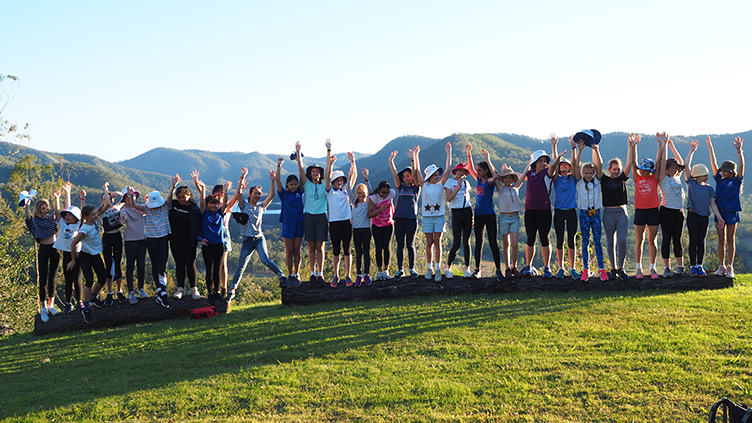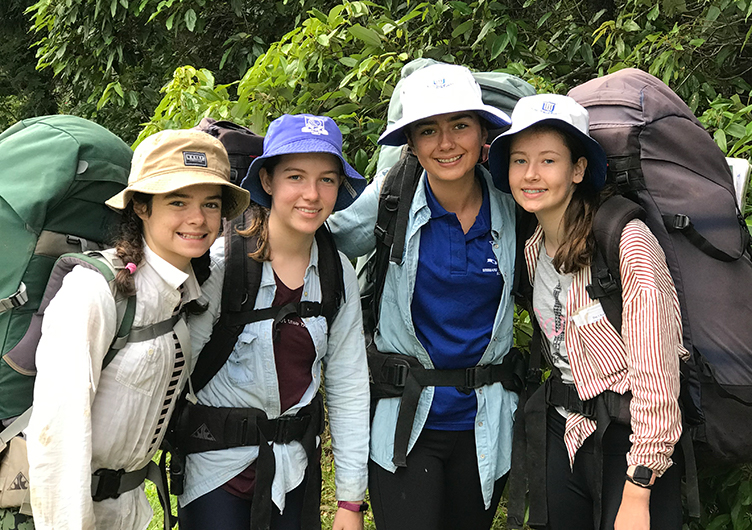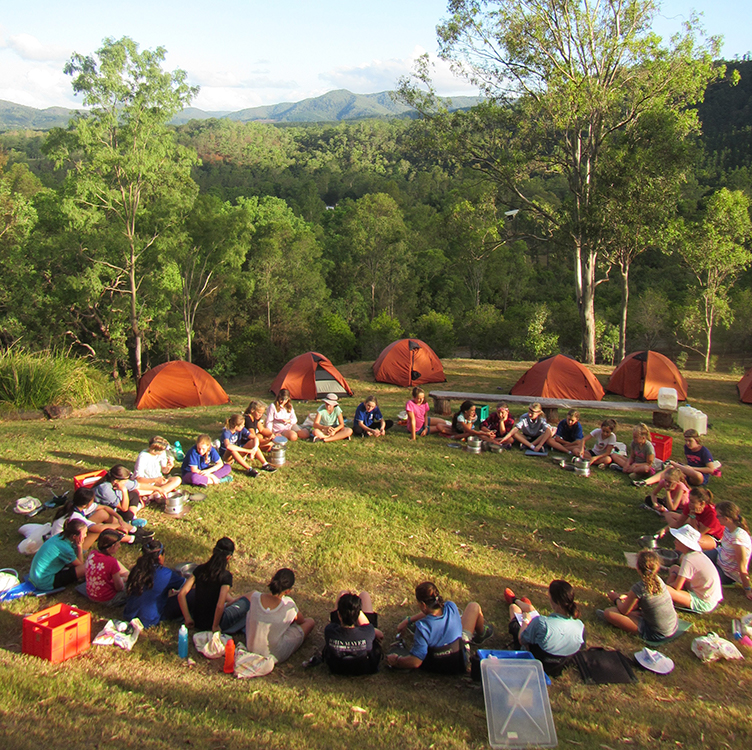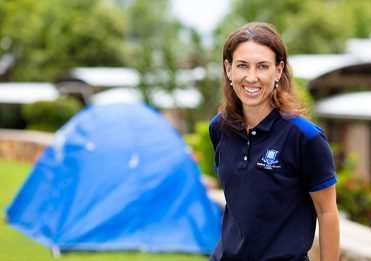Slow moments in nature—a still day on the dam when the water is clear and the sun is warm, stargazing during camp-out or watching the butterflies flutter along the creek—are often the moments that spark students’ curiosity at Marrapatta Memorial Outdoor Education Centre (Marrapatta).
These liminal spaces—the quiet gaps in time where girls discover, find meaning and connect to their own experiences—are often the ‘lightbulb’ moments in outdoor education. We use these teachable moments to engage in conversations with girls about the importance of the wellbeing and sustainability of the environment. These experiences with nature allow girls to develop a sense of appreciation and awareness that is vital in developing empathy and action to continue such environmental consciousness. Our girls have always shown an interest in learning about the different ecosystems at Marrapatta, but now more than ever, teenagers are curious about the environment and society’s impact on the planet.
The movement started by youth activist, Greta Thunberg, advocating for climate change awareness and encouraging students to take it upon themselves to incite change, has seen a heightened interest in environmental sustainability from children and young adults around the world.
Grammar girls are among those passionate about making change and creating a better collective future, and while the environment has long been a priority of the School, our girls are eager to learn and do more in the environmental landscape.
Student Environment Leadership Network representative, Simran Mackrani (10H), said young environmental advocates such as Greta Thunberg, Autumn Peltier and Jamie Margolin are relatable women role models demonstrating that young adults can make a difference.
‘Greta, Autumn and Jamie have proven that age is no barrier to creating change. Our understanding of the natural world from the School’s Outdoor Education Program allows us to decipher what we see and hear in the news, and make informed decisions about our actions and the influence they have on the environment.’
Since the introduction of outdoor education at Girls Grammar in 1978, our teachers have been committed to instilling in students a practical understanding of the natural world. The Outdoor Education Program encourages girls to develop positive relationships with the environment, others and themselves through interactions with nature, and while the program has many benefits, sustainability has always been the ultimate goal.
American philosopher, John Dewey, was a fervent believer that schools are places to develop the society we want to see, and at Marrapatta, we aim to do just that. It is our responsibility to provide young people with the practical skills and education necessary to engage judiciously with environmental issues. We challenge our girls to be curious and think critically about their impact on the environment and how we, as a community, can make a difference.
Implementing small actions while on camp, such as recycling appropriately, reducing single-use plastics and discussing why we take such measures, prompts girls to think about what else they can do.
It also enables a deeper understanding of, and connection with, the environment and the impact our actions have on the planet. These messages extend to the broader BGGS community as girls apply their learnings from outdoor education to other areas of the School through initiatives such as Grammar Goes Green and the Grammar Environmental Conservation Organisation (GECO).
Through the provision of outdoor education, and student-led initiatives such as GECO, girls are provided with opportunities to reflect on sustainable alternatives for everyday living and to establish the foundations for sustainability and stewardship into their future.
Members of the BGGS community are invited to join the School in maintaining the natural environment of the Girls Grammar grounds by participating in Grammar Goes Green events, advertised on the BGGS website throughout the year.
Mr James McIntosh
Director of Marrapatta

Year 8 students overlooking Borumba Dam

Year 9 students hiking through the Mary Valley

Year 7 students at the School’s Marrapatta campus



